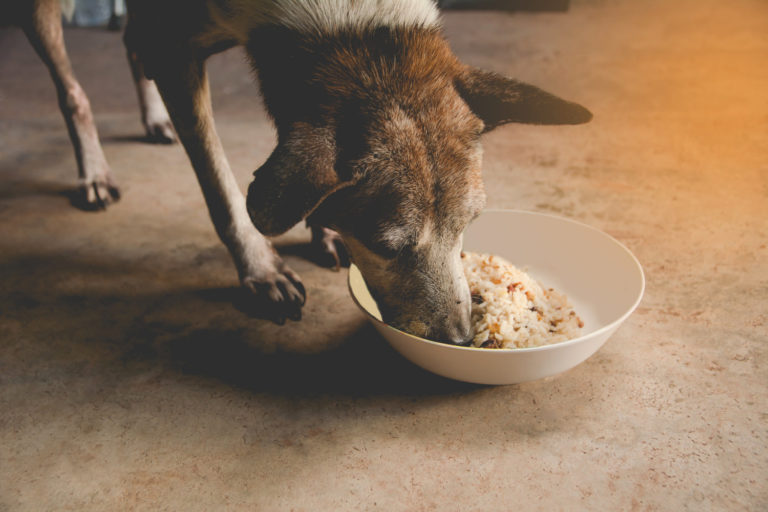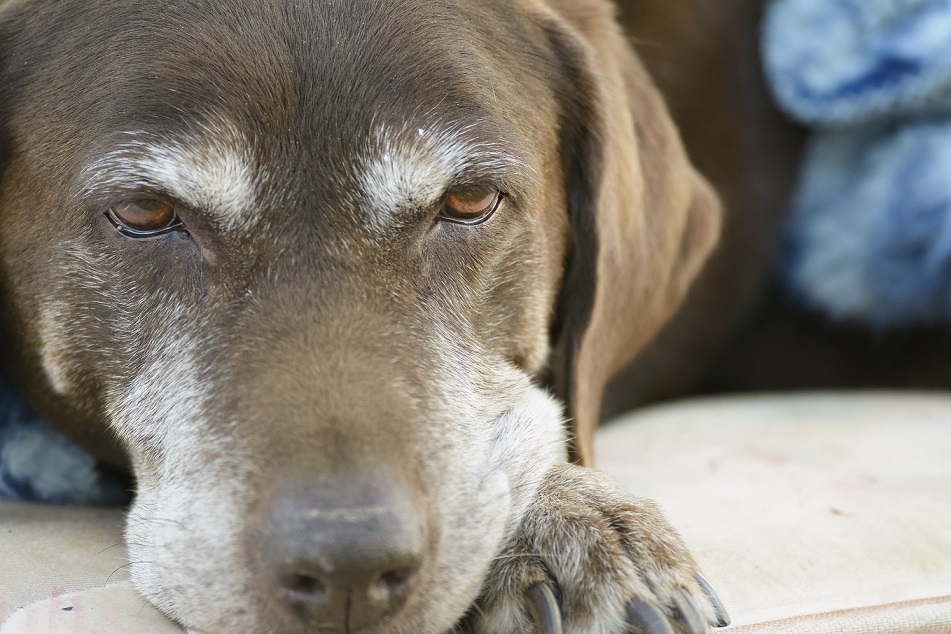9 Tips in Caring for Senior Dogs: Enjoy the Golden Years
Dogs are an important part of our families. And, like all family members, dogs get older and require more specific care. The age at which a dog is considered older, or senior, depends on the size and breed of the dog. Generally, larger breeds have a shorter life expectancy, and will show the signs of aging sooner than their smaller counterparts. For example, a Great Dane might be a senior dog at 5 or 6, while a Shih Tzu may not reach senior status until 10 to 11 years old. Regardless of when your beloved dog becomes a senior, it is important to know the special needs in caring for senior dogs.
Senior dogs become more prone to various health issues. These may include:
- arthritis and other mobility limitations
- vision loss
- hearing loss
- kidney, liver and/or heart disease
- cancer
- weight gain
- dental problems
- cognitive decline
Caring for Senior Dogs? Call Breckinridge Park Animal Hospital (972) 690-6900
How is caring for senior dogs different? Follow this advice to give your senior dog a happy, fulfilling life in their golden years.
9 Tips for Senior Dog Care
- Know Your Dog – Be aware of changes in both your senior dog’s behaviors and body. Are you witnessing anxiousness, agitation and confusion? Is there less interest in play and other favorite activities? Is there less of an appetite? Does your senior dog have a difficult time sitting or moving and avoids the stairs? Do you see or feel any lumps or skin changes that weren’t there before? Is your dog experiencing any urination or bowel changes? Does something just not seem quite right?
- Seek Professional Help – Caring for senior dogs includes more frequent visits to the veterinarian for exams and tests. Senior dogs should be examined every 6 months or more often if recommended by your veterinarian. Early detection and prevention of senior dog issues are key to prolonging your dog’s quality of life. Your veterinarian will also recommend if any changes in vaccines and other preventative care are warranted based on your dog’s age, health and activity. Compassionate veterinarians, like the doctors at Breckinridge Park Animal Hospital, are your number one resource for information on caring for your older pet.
- Give Good Nutrition – Feed your senior dog a quality dog food specially formulated for the nutritional needs of older dogs. Since many senior dogs are less active, they have lower fat and calorie requirements. Maintaining your dog’s weight, and not allowing them to gain, will keep them healthier longer. Also, partner with your veterinarian regarding any supplements that can potentially benefit your senior dog, such as glucosamine and chondroitin for arthritis.

Show Caring for Senior Dogs with good nutrition and lots of love
- Dental Care – Dental care is a crucial part of caring for senior dogs. Keep teeth clean with regular brushing and dental chew treats and toys. Schedule annual dental cleanings at a qualified facility like Breckinridge Park Animal Hospital.
- Exercise – Exercise is great for both you and your senior dog! Regular exercise will help maintain a good weight, and keep joints and muscles moving. An added bonus is that you get to spend quality time with your best friend. If you are concerned about how much exercise is appropriate for your older dog, ask your veterinarian for guidelines.
- Home Comfort – Make accommodations in your home to keep your senior dog comfortable. Consider adding ramps and non-slip surfaces. You can also show caring for senior dogs by providing warm, soft bedding for tired joints, and easy access to food and water. Provide plenty of toys to keep your senior dog’s mind stimulated and occupied.
- Grooming – Grooming your senior dog regularly provides quiet bonding time with your pet. It also gives you an opportunity to check their bodies for changes. Consistent grooming helps keep fur matting at bay, and cleans away excess drool, eye discharge, and other bodily secretions. As dogs age, their skin may become more sensitive, so be gentle.
- Prepare for Decline – Have patience. Vision loss, mobility limitations, hearing loss, and other conditions will make senior dogs slower. Also, accidents may happen as dogs become incontinent.
- Lots of Love – Caring for senior dogs means giving your dog a lot of care and attention. Older dogs still want to be with their owners, and will feel anxious when they don’t sense them nearby. Continue to play with, cuddle with and talk with your pet. You will never regret spending more time with your senior dog.

Caring for senior dogs may involve a little more work, but the effort is well worth it. Providing your beloved pet with comfortable and happy golden years is rewarding, and will give you many good memories to cherish for years to come.
Contact the Best Richardson Veterinarians
Are you caring for a senior dog? The compassionate staff and expert veterinarians at Breckinridge Park Animal Hospital can provide the care and advice you need to keep your older pet healthy and happy. We care about dogs as much as you do! Visit our website or call (972) 690-6900 to make an appointment.
Breckinridge Park Animal Hospital serves the northeast Dallas suburban area. We provide the community with some of the best veterinarians in Richardson, Garland, Plano, Murphy, Wylie, Sachse and Mesquite.
This information is not a substitute for professional veterinary medical advice. Prior to starting any new treatment or questions regarding an animal’s medical condition, always seek the advice of your veterinarian.





